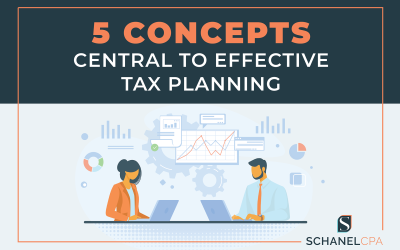
For generations, people have had part-time businesses, and in today’s so-called gig economy, it’s even more common. But is your part-time business really a business, or is it a hobby? The IRS draws a firm line between the two and has separate rules for the tax treatment of hobbies and businesses.
If it’s a legitimate business, you can deduct your losses if your expenses exceed your income. When your income is greater than your expenses and you make a profit, you’ll pay income tax and self-employment tax on that profit. The self-employment tax rate is currently 15.3%.
But if it’s a hobby, you’ll be subject to a different set of rules. You won’t have to pay self-employment tax, but you don’t get the same beneficial treatment for your expenses.
Under the hobby-loss rules, you have to pick up all the income from your hobby. Prior to tax reform, you could deduct your expenses, up to the amount of your income, but it had to be on Schedule A as a miscellaneous itemized deduction. That meant you could only deduct your hobby expenses if your total miscellaneous itemized deductions were greater than 2% of your adjusted gross income.
However, under the tax reform passed in December 2017, miscellaneous itemized deductions are suspended through 2025. This means you have to pick up all of your hobby income, but you don’t get any deductions.
So how do you make sure that your side business gets treated tax-wise as a business?
Here are the guidelines you need to follow:
- You must have a profit motive. In general, an activity must show a profit three out of five years (two out of seven, if it involves horses). A consistently profitable activity will be treated as a business.
- Treat it like a business. Keep books and records and open a separate bank account. Make sure you have all the local business registrations you need and pay sales tax if it applies to you. Get advice from an accountant or other experts in the same field.
- Put in enough time and effort. If you’re just occasionally dabbling in something, the IRS may consider that a hobby. Regularly putting in even a small amount of time over months or years indicates this is a business.
- Be willing to change your approach if it’s not successful. Businesses change approaches and adapt to economic conditions when profits fall off. Doing the same thing over and over while you continue to lose money looks more like a hobby.
- Get the skills you need to do the work competently. While both hobbyists and business owners take classes to improve their skills and knowledge, taking the advice of experts and others who have been successful in the same field is a sign of a business.
- Have you been successful in other endeavors in the past? This indicates you have some business acumen, but it doesn’t guarantee your current venture will be treated as a business.
- Are your losses due to circumstances beyond your control? Losses in the early years of a new venture are normal, and sometimes your timing may just be wrong. Recessions, illness, natural disasters, and theft can happen at just the wrong time. For some types of businesses, big swings in income are normal.
- Do you have other sources of income? If you need the income from your side business to pay your bills, that makes it look less like a hobby. The IRS is especially suspicious of taxpayers who want to offset other sources of income with losses so they can save on taxes.
- Will the assets used for this activity appreciate over time? The IRS overlooks losses from a rental property because of the anticipated increase in the value of the underlying property.
- How much personal enjoyment do you get from the activity? There’s nothing wrong with enjoying what you do, but if you’re doing this more for personal pleasure than for profit, then the IRS may consider it a hobby.
Following these guidelines will help ensure that the IRS treats your side business as a business, not a hobby. Please call our office so we can help you make your side business as successful as possible!
Schanel & Associates is a CPA firm specializing in accounting, tax, business valuation and litigation support serving Palm Beach, Martin and St. Lucie Counties and beyond since 1993. Our CPAs and accounting professionals work with individuals, businesses, estates and trusts to provide everything you need under one roof. For more information, contact us today at 561-624-2118.
Glenn Schanel is the founding Principal of Schanel and Associates. Glenn Schanel is a CPA with over three decades of experience helping people and organizations manage, make sense of and benefit from their finances. He oversees areas that include auditing, accounting, tax, business valuation, forensic accounting, litigation support and other consulting services to both business and individual clients.



